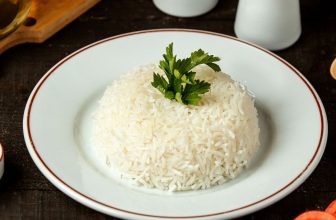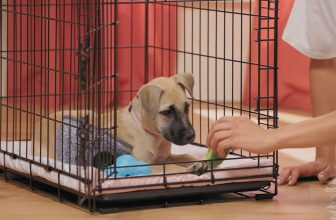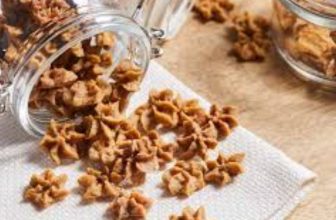Can Dogs Eat Baby Food? What’s Safe and What’s Not
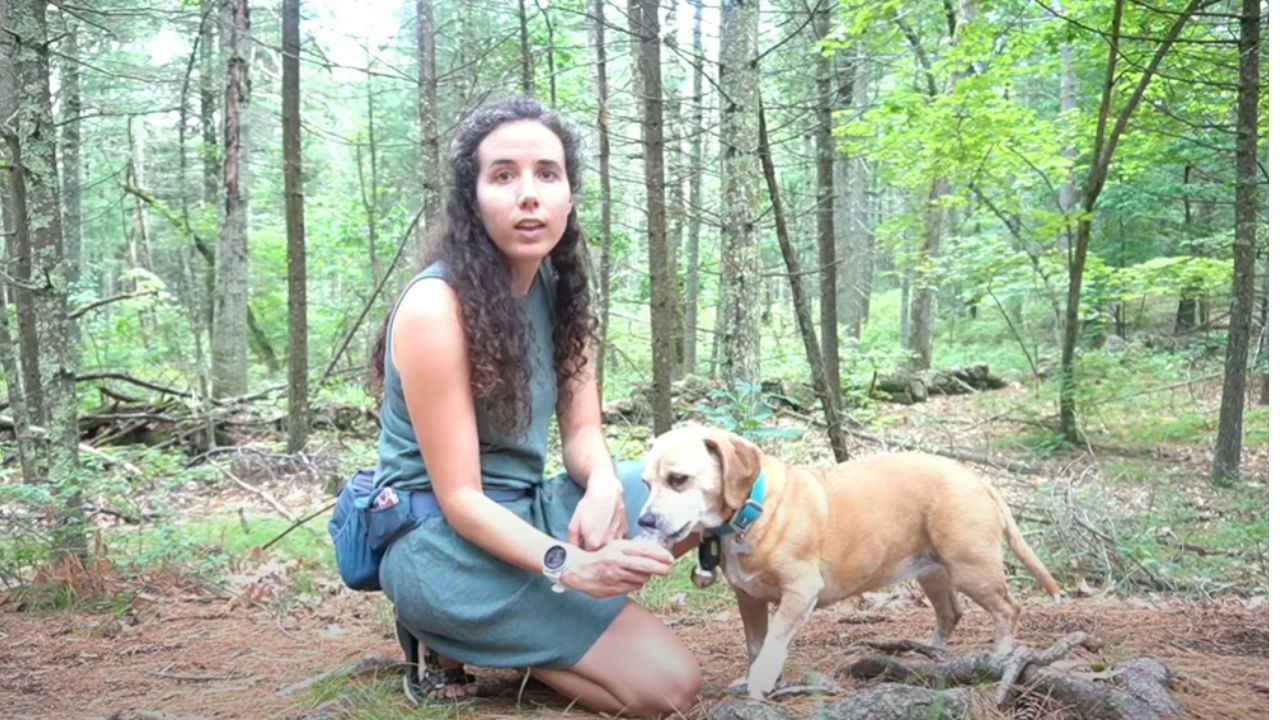
Can Dogs Eat Baby Food? Yes, isn’t always the right choice. Some ingredients in baby food can harm dogs.
Dogs are curious eaters. They often want to taste what we eat. Baby food might seem harmless—after all, it’s made for infants. But not all baby food is good for dogs. Some contain onions, garlic, or other harmful ingredients.
Knowing what’s safe and what’s not is crucial. This guide will help you understand which baby foods are safe for your furry friend and which ones to avoid. It will also highlight the dangers of certain ingredients. Read on to ensure your dog stays healthy and happy.
Nutritional Needs Of Dogs
Dogs have specific nutritional needs that differ from humans. Some pet owners wonder if baby food is safe for dogs. It’s important to understand what nutrients dogs need and if baby food meets those needs.
Essential Nutrients
Dogs need several essential nutrients to stay healthy. These nutrients help them grow, maintain energy, and support their overall well-being.
Here are some key nutrients:
- Protein: Builds and repairs tissues.
- Fat: Provides energy and supports cell function.
- Carbohydrates: Supplies energy.
- Vitamins: Supports various bodily functions.
- Minerals: Maintains bone health and supports nerve function.
Baby food often contains protein, fat, and carbohydrates. However, it may lack certain vitamins and minerals dogs need. It’s important to check the ingredients before offering baby food to your dog.
Dietary Requirements
Dogs have specific dietary requirements based on their size, age, and health. Their diet should include a balance of protein, fat, and carbohydrates. It should also include essential vitamins and minerals.
Here is a simple table to understand a dog’s dietary needs:
| Nutrient | Function |
|---|---|
| Protein | Growth and repair |
| Fat | Energy source |
| Carbohydrates | Energy source |
| Vitamins | Support bodily functions |
| Minerals | Bone health and nerve function |
Baby food can be used in moderation. It should not replace a dog’s regular diet. Always check labels for harmful ingredients. Some baby foods contain onion or garlic powder, which can be toxic to dogs.
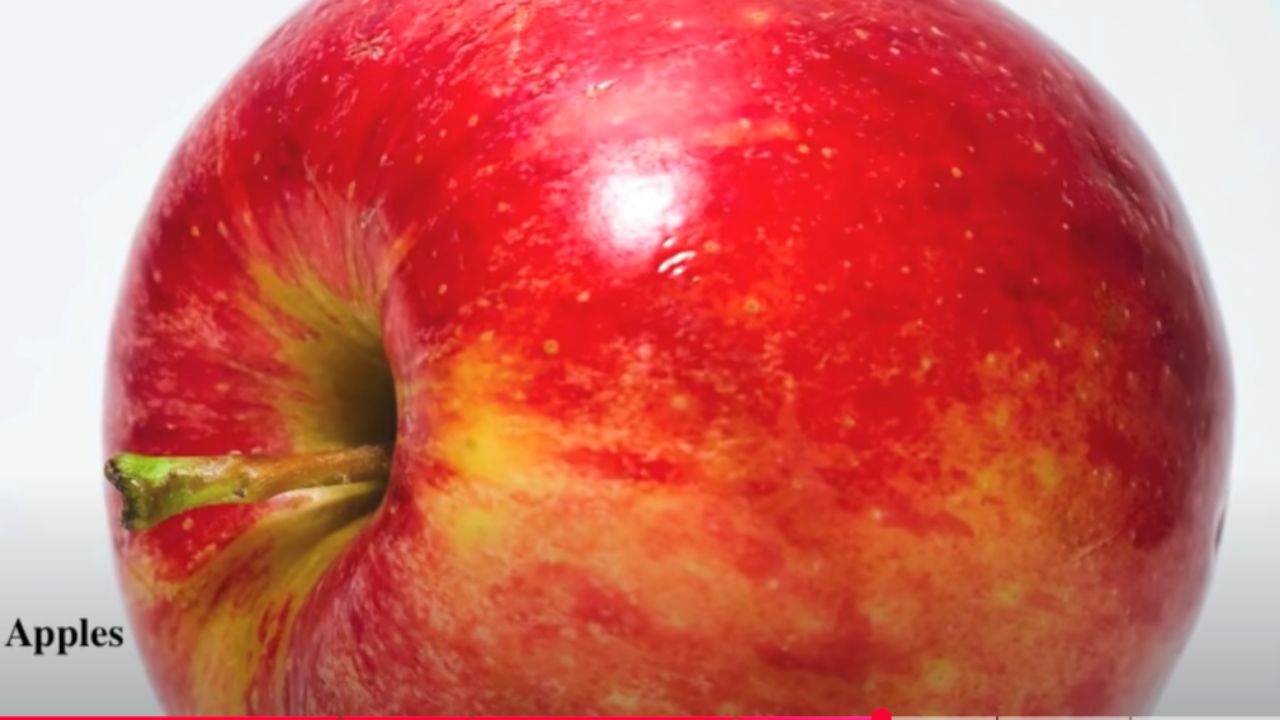
Types Of Baby Food
Dogs are known to be curious eaters. They sometimes show interest in what we eat. Baby food is one such item that might catch their attention. Pet owners often wonder if it is safe to feed baby food to their dogs. This blog post will explore different types of baby food. We will focus on pureed fruits and vegetable blends.
Pureed Fruits
Many dog owners ask if pureed fruits are safe for their pets. Some pureed fruits can be safe. However, it is crucial to check the ingredients. Avoid any baby food that contains xylitol. This is a sweetener harmful to dogs.
Common safe pureed fruits include:
- Apples (without seeds)
- Bananas
- Pumpkin
- Pears
Benefits of pureed fruits for dogs:
- Apples provide vitamins A and C.
- Bananas are rich in potassium.
- Pumpkin aids in digestion.
- Pears offer fiber and vitamins.
Be cautious with fruits that are high in sugar. Too much sugar can lead to health issues. Always feed in moderation. Start with a small amount to see how your dog reacts. If your dog shows any signs of discomfort, consult your vet immediately.
Vegetable Blends
Vegetable blends in baby food can also be safe for dogs. Many vegetables offer essential nutrients. However, some vegetables can be harmful. Avoid baby food with onions, garlic, or leeks. These can be toxic to dogs.
Common safe vegetable blends include:
- Carrots
- Peas
- Sweet potatoes
- Green beans
Benefits of vegetable blends for dogs:
- Carrots are good for dental health and provide vitamin A.
- Peas offer protein and fiber.
- Sweet potatoes are rich in beta-carotene.
- Green beans provide vitamins and iron.
Introduce new vegetables slowly. Observe your dog for any adverse reactions. Always choose baby food with no added salts or spices. These can upset your dog’s stomach. If in doubt, consult your vet before making any changes to your dog’s diet.
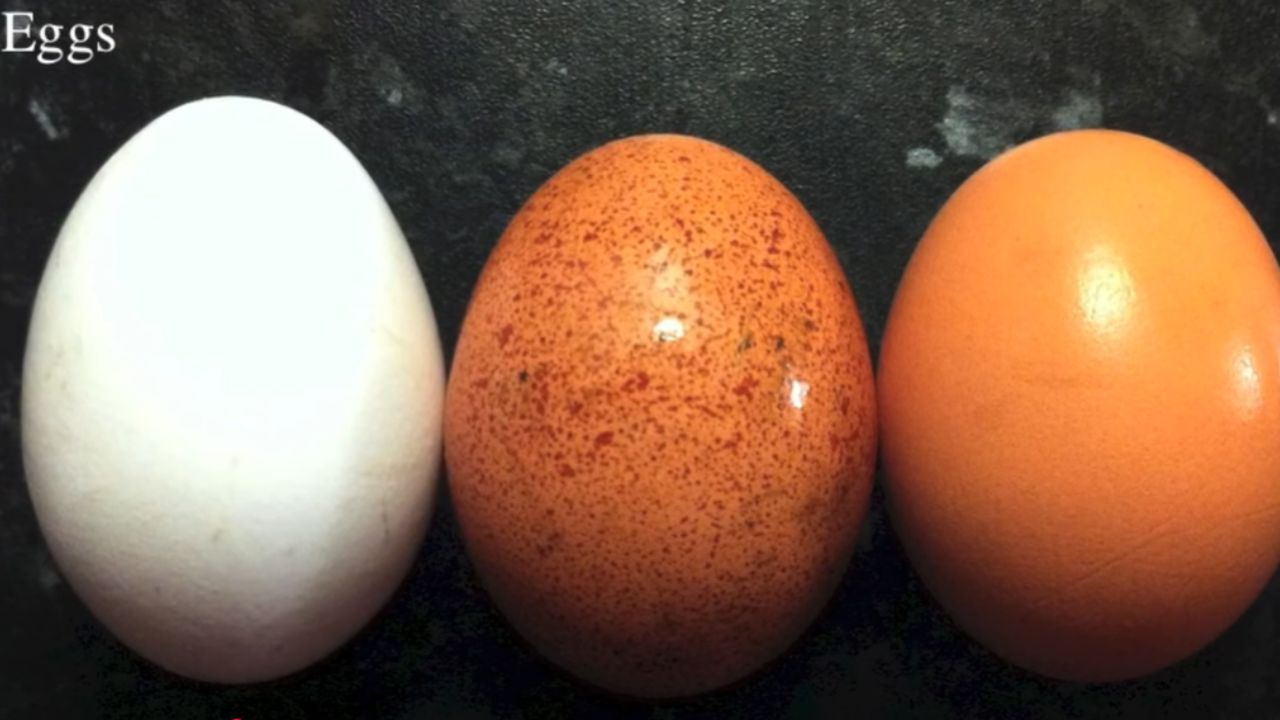
Ingredients To Avoid
Many pet owners wonder if it’s safe to feed their dogs baby food. While it might seem like a good idea, certain ingredients in baby food can be harmful to dogs. It’s important to know which ingredients to avoid to keep your furry friend safe and healthy.
Onions And Garlic
Onions and garlic are common ingredients in many baby foods, but they are toxic to dogs. These ingredients can cause a condition known as hemolytic anemia, which affects the red blood cells. Dogs cannot break down the compounds in onions and garlic, leading to serious health issues.
Here are some of the dangers:
- Hemolytic anemia: This condition destroys red blood cells, leading to weakness and fatigue.
- Vomiting and diarrhea: Even small amounts of onions or garlic can upset a dog’s stomach.
- Breathing problems: In severe cases, it can cause difficulty in breathing.
It’s crucial to check the ingredient list of any baby food before giving it to your dog. Even tiny amounts of onions or garlic can be harmful. Always choose baby food that is free from these dangerous ingredients.
Artificial Sweeteners
Artificial sweeteners are another ingredient to avoid in baby food for dogs. One of the most dangerous artificial sweeteners is xylitol. Xylitol is often found in foods labeled as “sugar-free” and can be extremely toxic to dogs.
Here are the risks associated with xylitol:
- Rapid insulin release: Xylitol causes a quick release of insulin, which can lead to low blood sugar levels.
- Hypoglycemia: Symptoms include weakness, loss of coordination, and seizures.
- Liver failure: High doses of xylitol can cause severe liver damage in dogs.
Other artificial sweeteners like aspartame and sucralose are also not safe for dogs. These sweeteners can cause digestive issues and other health problems. Always read the labels carefully and avoid any baby food containing artificial sweeteners.
Benefits Of Baby Food
Dogs are often more than pets; they are family. Their health and happiness are very important. This includes their diet. Many wonder if dogs can eat baby food. Baby food offers several benefits that can help dogs. This blog post explores those benefits, such as easily digestible food and convenient nutrition.
Easily Digestible
Baby food is soft and smooth. This makes it easy for dogs to digest. This is especially good for dogs with sensitive stomachs. They can eat baby food without having stomach issues. Here are some reasons why baby food is easily digestible:
- Simple Ingredients: Baby food often has a few ingredients. This reduces the chance of stomach upset.
- No Spices: Baby food does not have spices that can harm dogs. Spices can cause stomach issues in dogs.
- Smooth Texture: The smooth texture helps dogs swallow easily. This is good for older dogs or dogs with dental issues.
These factors make baby food a good choice for dogs. Dogs with digestive issues can benefit from it. It is also useful for dogs recovering from illness. Their stomachs can handle baby food well. This makes it an ideal food option for them.

Convenient Nutrition
Baby food provides convenient nutrition for dogs. It is easy to store and serve. This makes it a practical choice for busy pet owners. Here are some key points about its convenience:
| Aspect | Details |
|---|---|
| Portion Control | Baby food comes in small jars. This helps in feeding the right amount. |
| Nutrient-Rich | Baby food contains essential vitamins and minerals. These are important for a dog’s health. |
| Long Shelf Life | Baby food can be stored for a long time. This makes it a good option to keep in stock. |
These points show how baby food can be a great addition to a dog’s diet. It is not only nutritious but also very easy to use. Pet owners can rely on it for a quick and healthy meal for their dogs.
Risks Of Baby Food
Many dog owners wonder if their furry friends can eat baby food. It is essential to know the potential risks. Baby food is made for infants, not dogs. Feeding it to dogs can cause health issues. Understanding these risks helps in making better decisions for your pet’s diet.
Potential Allergens
Baby food often contains ingredients that can be harmful to dogs. Common allergens include:
- Dairy products – Many dogs are lactose intolerant. Dairy can cause stomach upset.
- Gluten – Some dogs are sensitive to gluten. Gluten can lead to allergies and skin problems.
- Certain fruits and vegetables – Ingredients like grapes, onions, and garlic are toxic to dogs.
It’s important to read labels carefully. Some baby foods have hidden ingredients. Always check for any toxic substances.
Imbalance Of Nutrients
Baby food is designed to meet the needs of infants. Dogs have different nutritional needs. Feeding baby food regularly can lead to an imbalance of nutrients. Dogs need:
- High protein levels – Essential for muscle and tissue repair.
- Specific vitamins and minerals – important for overall health.
- Proper fat content – Needed for energy and coat health.
Baby food may not provide these in the right amounts. Long-term feeding can cause deficiencies. Always consider the nutritional content before feeding your dog baby food.
Homemade Baby Food For Dogs
Can dogs eat baby food? It’s a common question for pet owners. Homemade baby food for dogs can be a healthy option. It offers control over ingredients and avoids preservatives. But it’s important to know which ingredients are safe and how to prepare them.
Safe Ingredients
When making homemade baby food for dogs, choosing the right ingredients is crucial. Not all baby food is safe for dogs. Some ingredients can be harmful. Here are some safe options:
- Meat: Chicken, turkey, and beef are good choices. Ensure they are cooked and unseasoned.
- Vegetables: Carrots, green beans, and peas are safe. Avoid onions and garlic.
- Fruits: Apples (without seeds), bananas, and blueberries are dog-friendly.
- Grains: Rice and oatmeal are safe for dogs. They provide energy and fiber.
It’s essential to avoid certain ingredients. Here’s a table of unsafe foods:
| Unsafe Ingredients | Reason |
|---|---|
| Onions | Can cause anemia |
| Garlic | Can damage red blood cells |
| Grapes/Raisins | Can cause kidney failure |
| Chocolate | Contains toxic substances |
Simple Recipes
Creating homemade baby food for dogs is easy. Here are some simple recipes to try:
Chicken and Rice:
- Cook 1 cup of chicken breast (unseasoned).
- Boil 1/2 cup of rice until soft.
- Mix chicken and rice.
- Puree until smooth.
This recipe is gentle on a dog’s stomach.
Carrot and Pea Puree:
- Steam 1 cup of carrots and 1/2 cup of peas.
- Allow vegetables to cool.
- Blend until smooth.
Rich in vitamins and fiber.
Apple and Banana Mash:
- Peel and core one apple.
- Slice one banana.
- Blend both fruits until smooth.
This sweet treat is a favorite for most dogs.
Homemade baby food for dogs can be a healthy addition to their diet. Always consult with a vet before making changes. Ensure all ingredients are safe and nutritious.
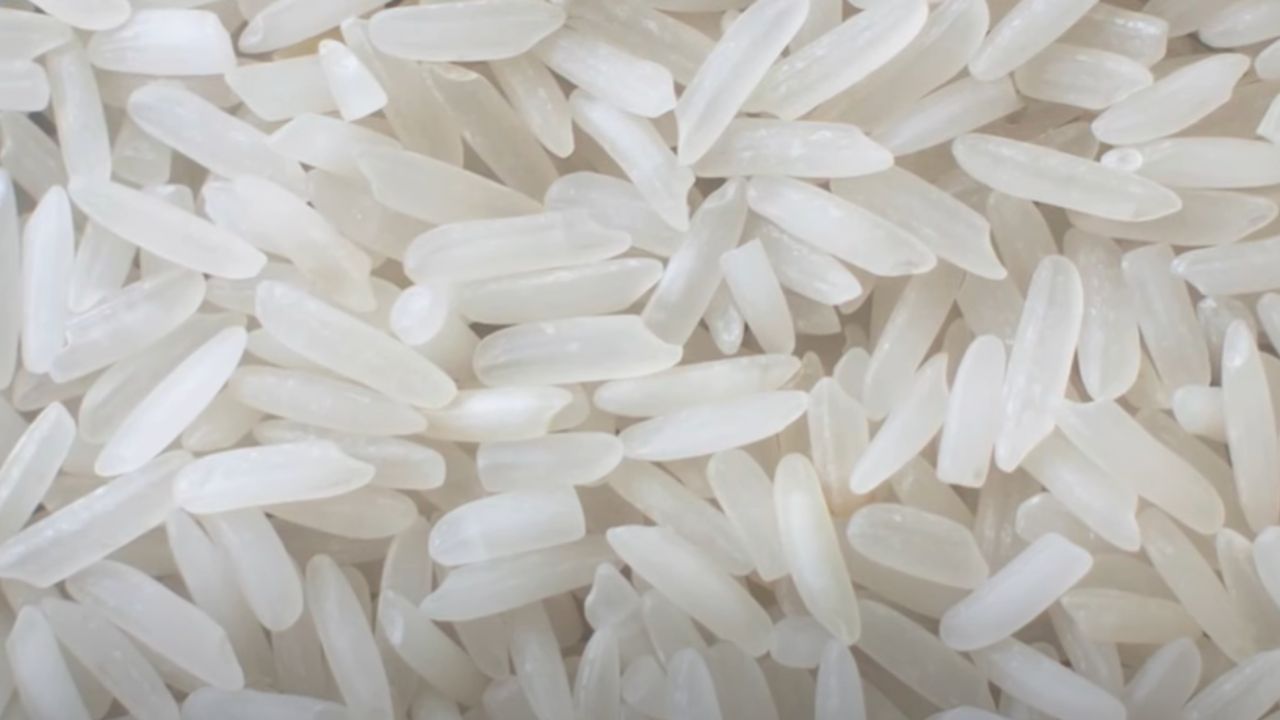
Consulting With A Vet
Many dog owners wonder if their furry friends can eat baby food. Baby food can seem like a simple and easy choice, especially when a dog is sick or has trouble eating. Consulting with a vet is always a good idea before making changes to a dog’s diet. This ensures the pet’s health and well-being.
When To Seek Advice
Consulting with a vet is crucial when considering baby food for dogs. Vets have the expertise to understand what is safe and healthy. There are certain situations when seeking advice from a vet is very important:
- If the dog has a medical condition like diabetes or allergies
- If the dog is recovering from surgery or illness
- If there are digestive issues or changes in stool
- If the dog is a puppy or a senior
Baby food might contain ingredients that are harmful to dogs. For example, onions, garlic, and certain spices can be toxic. Some baby foods also have high sugar content, which is not good for dogs. A vet can help identify safe options and portions.
Regular check-ins with a vet ensure that the dog’s diet remains balanced. Nutritional needs can change with age or health conditions. A vet can recommend the right type of baby food and the correct amount. This helps avoid any potential health risks.
Tailored Diet Plans
Tailored diet plans are essential for a dog’s health. Every dog is different, and their dietary needs can vary. A vet can create a plan that suits the dog’s specific needs. This ensures that the dog gets all the necessary nutrients.
Here are some factors that vets consider when creating a tailored diet plan:
| Factor | Considerations |
|---|---|
| Age | Puppies, adults, and seniors have different nutritional needs |
| Weight | Underweight or overweight dogs need specific diets |
| Health Conditions | Conditions like diabetes, allergies, and kidney disease affect diet |
| Activity Level | Active dogs may need more calories and protein |
Custom diet plans help manage a dog’s weight and overall health. They can also improve energy levels and coat conditions. Some dogs may have specific allergies or intolerances. A tailored plan can help avoid these triggers and keep the dog healthy.
Regular monitoring by a vet is important. As the dog’s needs change, the diet plan can be adjusted. This ensures that the dog continues to receive the right nutrition. Vets can also recommend supplements if needed. This supports the dog’s health and well-being.
Feeding Tips
Feeding your dog is an important responsibility. Many pet owners often wonder if certain human foods are safe for their furry friends. One such food is baby food. It’s soft, easy to digest, and often contains simple ingredients. But, can dogs eat baby food? Understanding the right feeding tips can help ensure your dog’s health and happiness.
Portion Control
When feeding your dog baby food, portion control is very important. Too much baby food can lead to health issues. Dogs have different dietary needs compared to humans. Here are some tips to keep in mind:
- Start with a small amount, like a teaspoon.
- Mix baby food with their regular meals.
- Monitor your dog’s weight regularly.
- Consult your vet for personalized advice.
Here is a simple table to help with portion sizes based on your dog’s weight:
| Dog’s Weight | Baby Food Portion |
|---|---|
| Up to 10 lbs | 1-2 teaspoons |
| 10-20 lbs | 2-3 teaspoons |
| 20-50 lbs | 1 tablespoon |
| Over 50 lbs | 1-2 tablespoons |
By following these guidelines, you can ensure your dog gets the right amount of baby food without overfeeding.
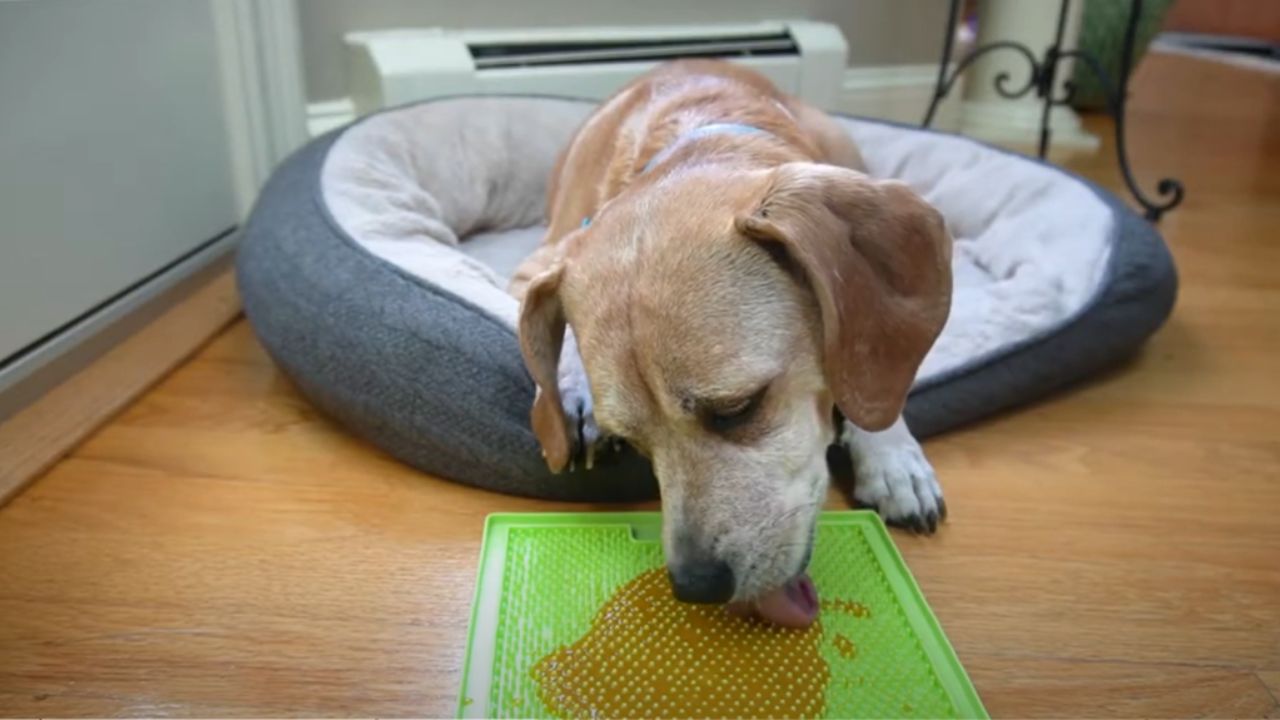
Monitoring Reactions
Monitoring your dog’s reactions after feeding them baby food is crucial. Every dog is different and may react differently to new foods. Watch for signs of allergies or digestive issues. Common signs to look out for include:
- Vomiting
- Diarrhea
- Itching or scratching
- Lethargy
If you notice any of these signs, stop feeding baby food immediately. Contact your vet for advice. Introduce baby food slowly into their diet. This helps you observe any adverse reactions early on.
Keep a food diary. Note down what you fed your dog and how they reacted. This can be helpful for your vet if problems arise. Also, ensure the baby food does not contain harmful ingredients like onions or garlic. These can be toxic to dogs.
By carefully monitoring your dog’s reactions, you can ensure their safety and well-being when introducing new foods like baby food.
Frequently Asked Questions
Q1: What Baby Food Is Safe For Dogs?
A1: Plain baby food without additives, such as pureed vegetables or meats, is safe for dogs. Avoid ingredients like onions, garlic, and artificial sweeteners. Always consult your vet before introducing new foods.
Q2: Can Dogs Eat Chicken Gerber Baby Food?
A2: Yes, dogs can eat chicken Gerber baby food. Ensure it contains no harmful ingredients like onions or garlic. Always consult your vet before introducing new foods.
Q3: Which Baby Food Pouches Are Safe For Dogs?
A3: Choose baby food pouches with no added sugar, salt, onions, or garlic. Organic fruit and vegetable blends are safe. Always consult your vet.
Q4: Can Dogs Eat Dry Baby Food?
A4: Yes, dogs can eat dry baby food in small amounts. Ensure it contains no harmful ingredients like onions or garlic. Always consult your vet before introducing new foods.
Q5: Is Baby Food Safe For Dogs?
A5: Most baby foods are safe but avoid those with onions or garlic.
Conclusion
Feeding baby food to dogs can be safe in moderation. Always check the ingredients first. Ensure there are no harmful additives. Consult your vet for personalized advice. Some baby foods can provide nutritional benefits. Others may cause issues. Watch for allergies or digestive problems.
Your dog’s health should always come first. Offer baby food as a treat, not a meal. Balance is key to a healthy diet. Understanding your dog’s needs helps keep them happy.



